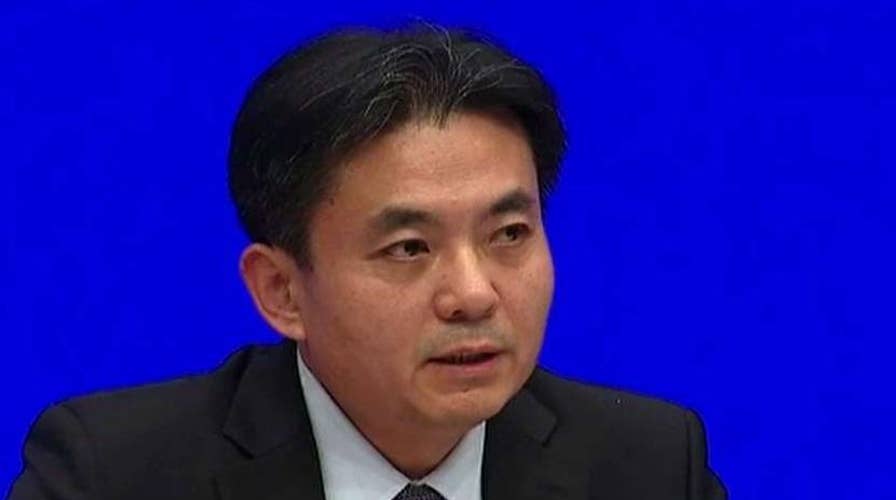China voices support for Hong Kong leadership after another night of protests
Chinese officials blame unspecified western countries for the unrest as the violent protests continue; Kitty Logan reports.
Two-months of growing pro-democracy protests in Hong Kong that have become increasingly violent have drawn a stark warning from China on Tuesday, which said it will be "only a matter of time" before it punishes those behind the demonstrations in the Asian financial hub.
A spokesman for China's top policy office on Hong Kong, Yang Guang, singled out "brazen, violent and criminal actors" Tuesday involved in the demonstrations over several weeks that began with opposition to a now-suspended extradition law, which would have allowed suspects to be tried in mainland courts.
"We would like to make it clear to the very small group of unscrupulous and violent criminals and the dirty forces behind them: Those who play with fire will perish by it," Yang said. "Don't ever misjudge the situation and mistake our restraint for weakness."
CHINA RELEASES DRAMATIC ARMY PROPAGANDA VIDEO IN WAKE OF HONG KONG PROTESTS WITH 'ANTI-RIOT' DRILLS
So far China has not visibly intervened in the situation, instead publishing a series of strongly-worded editorials in state media condemning "violent radicals" and "foreign forces" allegedly inflaming them.
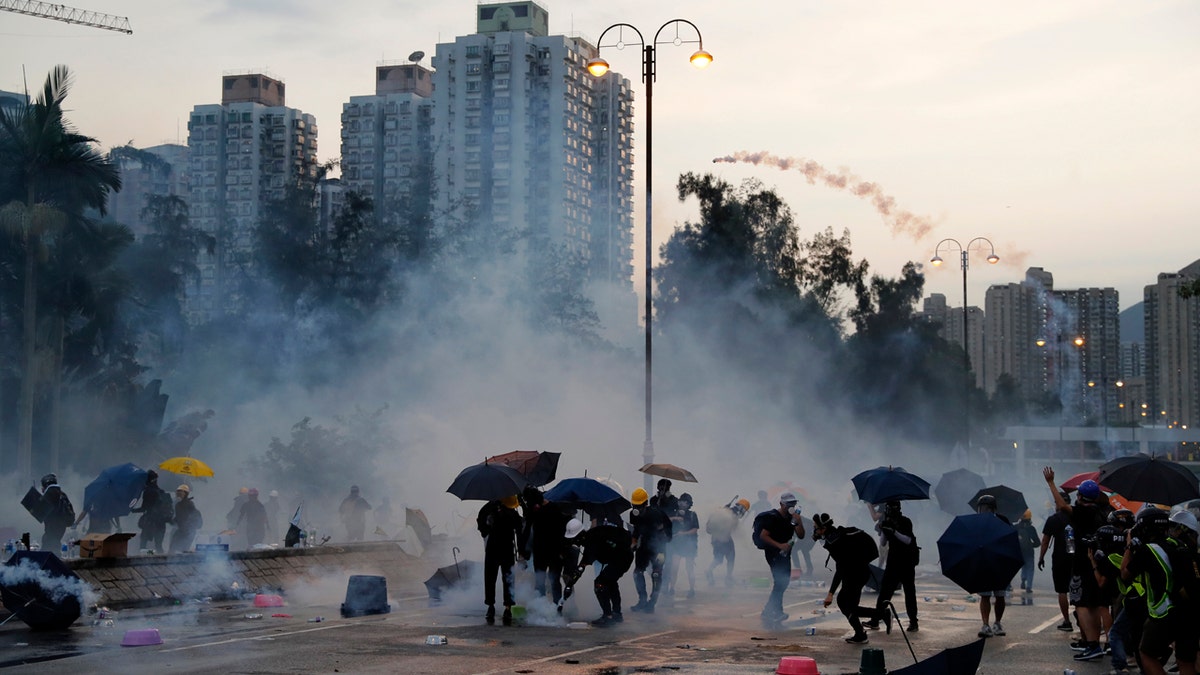
Droves of protesters filled public parks and squares in several Hong Kong districts on Monday in a general strike staged on a weekday to draw more attention to their demands that the semi-autonomous Chinese city's leader resign. (AP Photo/Kin Cheung)
Speculation has grown, however, that the Communist Party-led central government will eventually deploy the military after Chinese officials pointed to an article in Hong Kong law that allows troops already stationed in the city to help with "public order maintenance" at the Hong Kong government's request.
Last week, the Chinese army also released a video for its troops based in the city showing footage of an "anti-riot drill" as a top commander warned of punishment against "violent criminals."
Pro-democracy legislator Fernando Cheung Chiu-hung told reporters Tuesday that Beijing should not make the demonstrations a national security issue because the movement is not targeting the central government, but rather the administration of Hong Kong Chief Executive Carrie Lam. During a "People's Press Conference," a protester using the pseudonym Jerry Chan told reporters that demonstrators would not attempt to confront the military if it made an appearance.
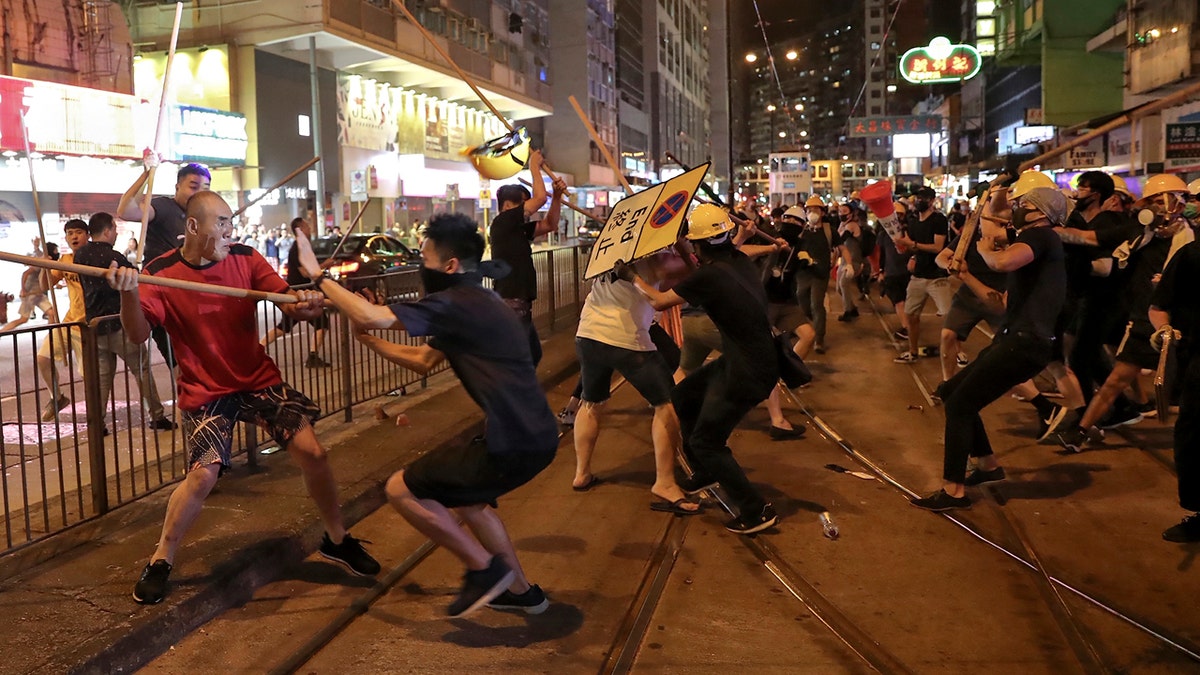
In this Monday, Aug. 5, 2019, photo, protesters wearing black shirt, right, fight with a group of men wielding wooden poles on a street during the anti-extradition bill protest at a neighborhood in Hong Kong. (AP Photo)
"I believe the protesters and Hong Kong citizens will 'be water' and know what to do," Chan said, referring to the protesters' philosophy of taking a fluid approach to their demonstrations. "We will go home and sleep."
But other members of the newfound resistance are embracing a more radical position, with some saying they will continue to protests even if it comes with the ultimate cost.
“Some of them are prepared to die for the movement,” a protester named Chloe told The Wall Street Journal. “I am also willing to die for it.”
The protests in Hong Kong began in April and reached critical mass in early June as a call to withdraw an extradition bill that would have allowed people in the former British colony to be sent to stand trial in mainland China, where critics say their legal rights would be threatened. Even though the government indefinitely suspended the legislation, demonstrators are still demanding greater democracy and government accountability.
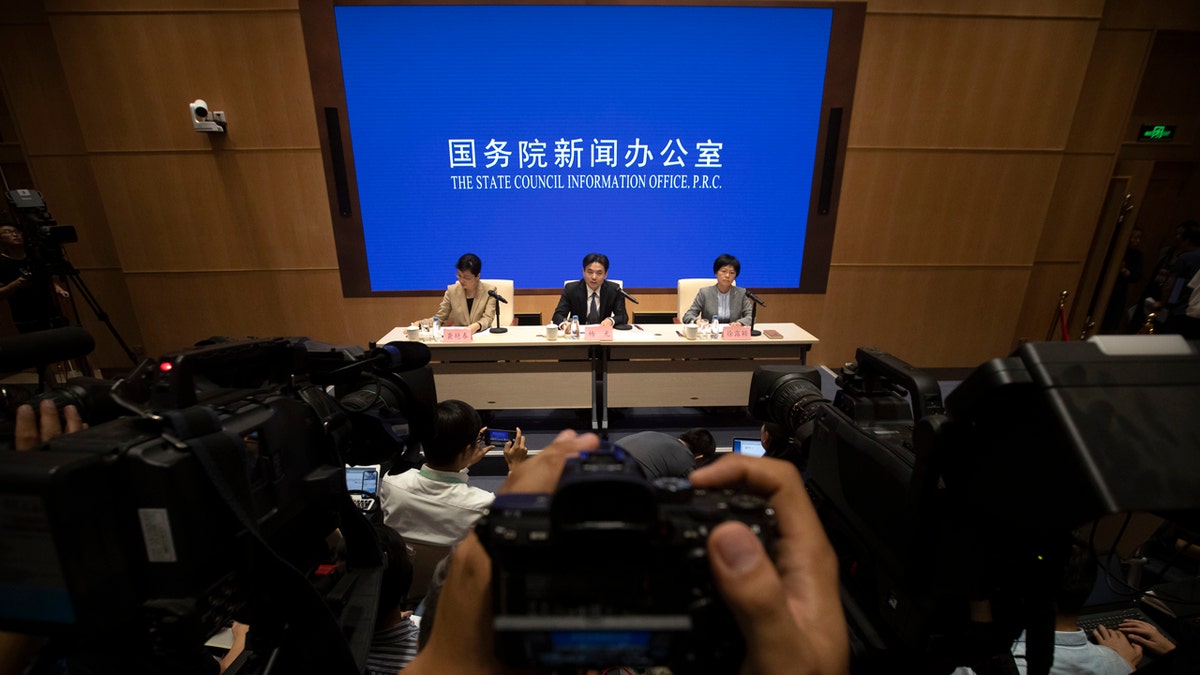
Yang Guang, center, spokesman for the Chinese Cabinet's Hong Kong and Macao Affairs Office, speaks during a press conference in Beijing, Tuesday, Aug. 6, 2019. (AP Photo/Mark Schiefelbein)
As the movement has progressed, both protesters and police have at times resorted to violence. Since the protests began, the Hong Kong Garrison of China's People's Liberation Army has stayed in its barracks and left the Hong Kong police force to deal with the massive crowds and sometimes violent clashes.
A general strike on Monday workday paralyzed operations in the city. Major roads and public transit lines were blocked, and at least 77 flights at the airport were canceled as protesters challenged law enforcement in at least eight districts. Hong Kong security secretary John Lee said the damage and violence was "unprecedented" since 1997, with more than 15 police stations or facilities attacked and surrounded.
Echoing language used by officials to criticize their actions, protesters said they "strongly condemn the lawlessness and the inhuman actions done by police." Some police officers have shown "total lack of self-discipline," Chan said, adding that some tear gas was fired on residential buildings during clashes across several districts Monday.
CLICK HERE FOR THE FOX NEWS APP
Hong Kong police say they've arrested 568 demonstrators between the ages of 13 and 76 since June, and charged them with a variety of crimes, including rioting, which can carry a sentence of up to 10 years.
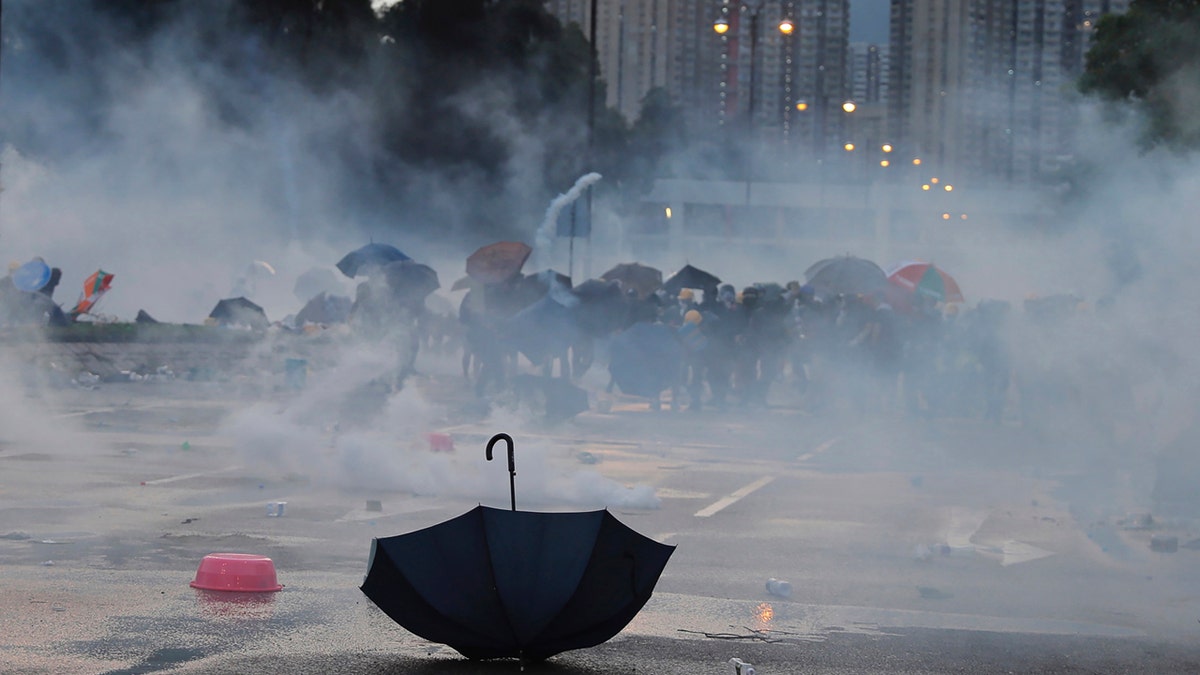
An umbrella is abandoned as protesters pull back from tear gas on Monday, Aug. 5, 2019. (AP Photo/Kin Cheung)
During an earlier 79-day round of protests in 2014 demanding direct elections for Hong Kong's chief executive, police announced around 1,000 arrests. Eight leaders of the 2014 movement were sentenced this year to up to 16 months in prison on charges of public nuisance offenses, in what critics called an apparent effort to intimidate other activists.
The Associated Press contributed to this report.
